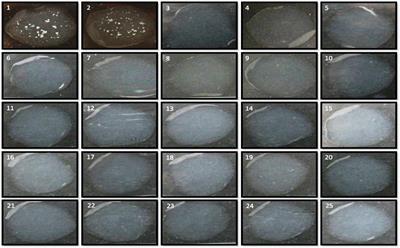ORIGINAL RESEARCH
Published on 29 Mar 2023
A rapid direct-differential agglutination assay for Brucella detection using antibodies conjugated with functionalized gold nanoparticles

doi 10.3389/fnano.2023.1132783
- 2,607 views
- 3 citations
6,033
Total downloads
30k
Total views and downloads
ORIGINAL RESEARCH
Published on 29 Mar 2023

EDITORIAL
Published on 24 Dec 2021
ORIGINAL RESEARCH
Published on 03 Dec 2021

BRIEF RESEARCH REPORT
Published on 24 Aug 2021

ORIGINAL RESEARCH
Published on 23 Jul 2021

MINI REVIEW
Published on 07 Jun 2021

